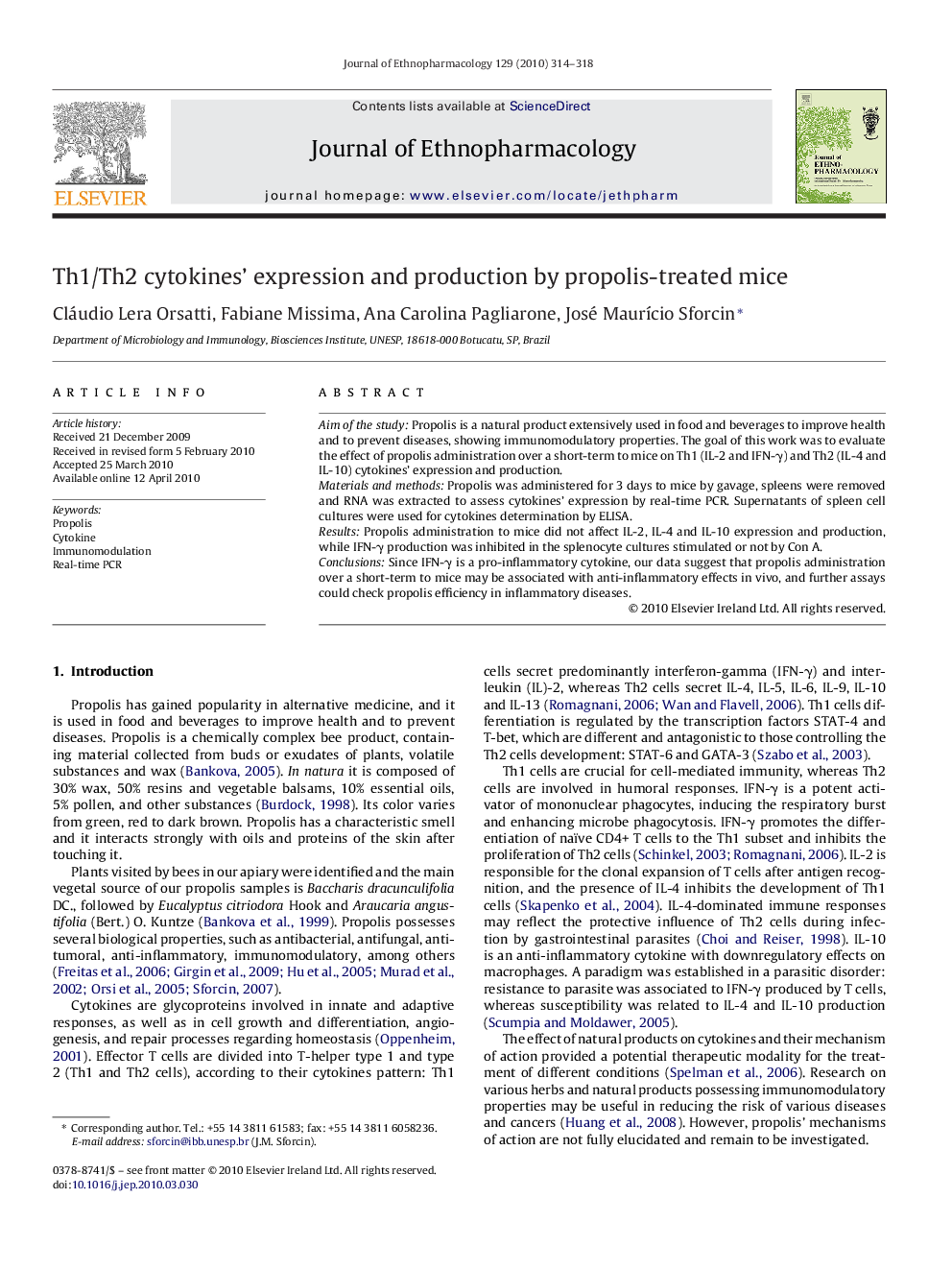| Article ID | Journal | Published Year | Pages | File Type |
|---|---|---|---|---|
| 2545854 | Journal of Ethnopharmacology | 2010 | 5 Pages |
Aim of the studyPropolis is a natural product extensively used in food and beverages to improve health and to prevent diseases, showing immunomodulatory properties. The goal of this work was to evaluate the effect of propolis administration over a short-term to mice on Th1 (IL-2 and IFN-γ) and Th2 (IL-4 and IL-10) cytokines’ expression and production.Materials and methodsPropolis was administered for 3 days to mice by gavage, spleens were removed and RNA was extracted to assess cytokines’ expression by real-time PCR. Supernatants of spleen cell cultures were used for cytokines determination by ELISA.ResultsPropolis administration to mice did not affect IL-2, IL-4 and IL-10 expression and production, while IFN-γ production was inhibited in the splenocyte cultures stimulated or not by Con A.ConclusionsSince IFN-γ is a pro-inflammatory cytokine, our data suggest that propolis administration over a short-term to mice may be associated with anti-inflammatory effects in vivo, and further assays could check propolis efficiency in inflammatory diseases.
Graphical abstractThis work aimed to evaluate Th1 and Th2 cytokines’ expression and production by propolis-treated mice, in order to understand its immunomodulatory action in vivo. Propolis administration to mice did not affect IL-2, IL-4 and IL-10 expression and production, while IFN-γ production was inhibited in the splenocyte cultures stimulated or not by Con A. Since IFN-γ is a pro-inflammatory cytokine, our data suggest that propolis administration over a short-term to mice may be associated with anti-inflammatory effects in vivo.Figure optionsDownload full-size imageDownload as PowerPoint slide
